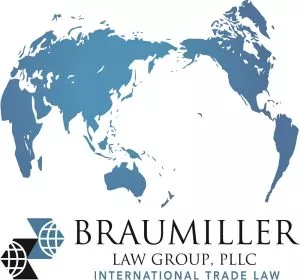Summary
The Office of Management and Budget ("OMB"), Made in America Office issued a Final Rule to clarify the Build America, Buy America Act ("BABA") provisions of the Infrastructure Investment and Jobs Act4 ("IIJA") and to clarify existing provisions related to domestic preferences. The Final Rule amends Title 2 of the Code of Federal Regulations ("CFR"), subtitle A, chapter I by adding a new Part 184 to support implementation of BABA. OMB also amended 2 CFR 200.322 to clarify existing provisions within part 200. According to OMB, the Final Rule "is intended to improve consistency in the implementation of BABA requirements across the Federal Government."5 The Final Rule will take effect October 23, 2023.
Some important revisions were included in the new Part 184 to 2 CFR, such as:
- The manufacturing standards for construction materials were revised. The definition of "construction materials" ("Construction Materials") under BABA will now include engineered wood, optic glass, optical fiber, fiber optic cable and drop cable;
- The definition of "manufactured products" was clarified to be an affirmative approach. Essentially all significant manufacturing processes must occur in the U.S. for Construction Materials to meet BABA's requirements;
- "Minor additions," which the relevant Federal agencies will subsequently define, such as regarding simple assembly operations, will not be sufficient to alter what constitutes a Construction Material;
- The Commercial-Off-The-Shelf ("COTS") exemption will not apply absent waivers granted by the relevant Federal agencies based on prevailing public interest grounds;
- The Trade Agreements Act ("TAA") will not be applied uniformly across infrastructure projects absent public interest waivers granted by the relevant Federal agencies; and
- BABA waivers will only be granted based on prevailing public interest, non-availability, and/or unreasonable cost (i.e., greater than 25% of the infrastructure project at issue) grounds.
Construction Materials
OMB defines Construction Materials in 2 CFR 184.3 to include the following products and defined all significant U.S. manufacturing processes in 2 CFR 184.6. Each construction material is followed by a standard for the material to be considered ''produced in the United States.'' These are listed below.
-
- Non-ferrous metals. All manufacturing processes, from initial smelting or melting through final shaping, coating, and assembly, occurred in the United States.
- Plastic and polymer-based products. All manufacturing processes, from initial combination of constituent plastic or polymer-based inputs, or, where applicable, constituent composite materials, until the item is in its final form, occurred in the United States.
- Glass. All manufacturing processes, from initial batching and melting of raw materials through annealing, cooling, and cutting, occurred in the United States.
- Fiber optic cable (including drop cable). All manufacturing processes, from the initial ribboning (if applicable), through buffering, fiber stranding and jacketing, occurred in the United States. All manufacturing processes also include the standards for glass and optical fiber, but not for non-ferrous metals, plastic and polymer-based products, or any others.
- Optical fiber. All manufacturing processes, from the initial preform fabrication stage through the completion of the draw, occurred in the United States.
- Lumber. All manufacturing processes, from initial debarking through treatment and planing, occurred in the United States.
- Drywall. All manufacturing processes, from initial blending of mined or synthetic gypsum plaster and additives through cutting and drying of sandwiched panels, occurred in the United States.
- Engineered wood. All manufacturing processes from the initial combination of constituent materials until the wood product is in its final form, occurred in the United States.
The guidance is clear that only a single standard should be applied to a single construction material. For example, for products that comprise multiple types of construction material, for example, plastic and non-ferrous metal, only a single standard should be applied to that material, not both.
Manufactured Products
The new 2 CFR 184.3 defines "manufactured products" to be articles, materials, or supplies that have been processed into a specific form and shape, or combined with other articles, materials, or supplies to create a product with different properties than the individual articles, materials, or supplies. Note that an article, material, or supply classified as a manufactured product may include components that are construction materials, iron or steel products, cement or aggregates.
Standard of "Produced in the United States"
The guidance under 2 CFR 184.4 provides that "An article, material, or supply should not be considered to fall into multiple categories. ... The classification of an article, material, or supply as falling into one of the categories listed in this paragraph must be made based on its status at the time
it is brought to the work site for incorporation into an infrastructure project."6 2 CFR 184.6(b) provides that "(b) Except as specifically provided, only a single standard under paragraph (a) should be applied to a single construction material."7
In the case of iron or steel products, all manufacturing processes, from the initial melting stage through the application of coatings, must occur in the United States. In the case of manufactured products, the product must be manufactured in the United States and the cost of the components of the manufactured product that are mined, produced, or manufactured in the United States is greater than 55 percent of the total cost of all components of the manufactured product, unless another standard that meets or exceeds this standard applies.
"Minor additions," which the relevant federal agencies will subsequently define, such as regarding simple assembly operations, will not be sufficient to alter what constitutes a construction material under BABA, "Minor additions of articles, materials, supplies, or binding agents to a construction material do not change the categorization of the construction material."8 OMB clarified that "Federal agencies may also provide further guidance on this topic. This may afford Federal agencies the opportunity to address at least some of the specific concerns raised above, such as regarding simple assembly operations that may be seen as being outside of the 'manufacturing process' because they are considered minor additions."9
Commercially Available Off-the-shelf (COTS) Exemption Will Not Apply by Default
OMB indicated that it would not extend the COTS exception under the Buy American Federal Acquisition Regulations ("Buy American FARs") to infrastructure projects absent waivers granted by the relevant Federal agency based on prevailing public interest grounds. Bear in mind that the relevant Federal agencies have not previously found such waivers to be in the public interest except for de minimis or minor components, as follows:
"Regarding the comment requesting a COTS exemption, OMB notes that the waiver process, not part 184, would be the appropriate mechanism to address concerns on this topic. OMB observes that Federal agencies have not previously found such a waiver to be in the public interest, but COTS items may potentially fall under other public interest waivers that agencies have issued, such as de minimis or minor component waivers "10
Trade Agreements Act (TAA) Will Not Be Applied Uniformly Across Infrastructure Projects
OMB indicated that the TAA will not be applied uniformly across infrastructure projects absent waivers granted by the relevant Federal agencies based on prevailing public interest grounds. Instead, the TAA will be applied to infrastructure projects in the form of public interest waivers. The Final Rule provides that:
"if 'a recipient is a State that has assumed procurement obligations pursuant to the Government Procurement Agreement or any other trade agreement, a waiver of a Made in America condition to ensure compliance with such obligations may be in the public interest.' Memorandum M-22-11 also explains that all proposed waivers citing the public interest as the
statutory basis must include a detailed written statement, which shall address all appropriate factors, 'such as potential obligations under international agreements.'"11
The OMB distinguished between financial assistance awards from direct federal procurement by specifying that "federal financial assistance" awards should not be subject to the TAA:
"The Made in America Office also issued a separate fact sheet within the last year that discusses how the TAA applies to both direct Federal procurement under the FAR and domestic content preferences for Federal financial assistance. See 'Fact Sheet on Buy American (BAA) or Buy America,' Made in America Office (2022) ("Fact Sheet"). The Fact Sheet recognizes that the 'BABA provisions apply in a manner consistent with United States obligations under international agreements.' It further explains, however, that 'Federal financial assistance awards are generally not subject to international trade agreements because these international obligations only apply to direct federal procurement activities by signatories to such agreements.' The FAR addresses how international trade agreements implemented by the TAA apply to direct Federal procurement activities of the U.S. at FAR subpart 25.4. See also FAR 25.1101, 25.1103, and 52.225-5."12
BABA Waivers
OMB indicated that BABA waivers will only be granted based on the following prevailing public interest, non-availability, and/or unreasonable cost grounds:
Public Interest — The relevant Federal agency will only grant this type of waiver if applying the relevant BABA requirements would be inconsistent with the prevailing public interest, which could be useful in perhaps obtaining a COTS exemption.
Non-Availability — The relevant Federal agency will only grant this type of waiver for certain limited types of iron, steel, manufactured products, or Construction Materials that are not produced in the United States in sufficient and reasonably available quantities or of a satisfactory quality, such as perhaps optical fiber, but probably not glass.
Unreasonable Cost — The relevant Federal agency will only grant this type of waiver if the inclusion of iron, steel, manufactured products, or Construction Materials produced in the U.S. will increase the cost of the overall infrastructure project by more than 25 percent.
Conclusion
In summary, the issuance of the Final Rule by OMB signifies a major milestone in the implementation of the Buy America provisions under the Infrastructure Investment and Jobs Act, with the primary objective of providing clarity and uniformity in applying Buy America requirements throughout the federal government. This comprehensive rule introduces significant changes affecting construction materials, manufactured products, and the criteria for products qualifying as "produced in the United States." These adjustments reflect a concerted commitment to prioritize domestic production and sourcing, advancing the objectives of the Buy America provisions. With the Final Rule scheduled to take effect on October 23, 2023, it becomes crucial for businesses and agencies involved in infrastructure projects to swiftly adapt their practices and compliance protocols to ensure adherence to these updated regulations.
1 James R. Holbein practices in the area of international trade and customs law and has written extensively about digital assets and the potential for digital technologies to reshape supply chains and open new ways to collaborate.
Harold Rader Jackson assists companies across a range of industries, including aerospace, medicine and medical devices, oil and gas, electronics, textiles, industrial equipment, logistics and customs brokerage, and other areas.
This article builds upon the analysis in our prior article, OMB Proposes Rule to Clarify Buy America Provision for Grants and Agreements, April 5, 2023, found at https://www.braumillerlaw.com/omb-proposes-rule-to-clarify-buy- america-pro/
2 OMB, 2 CFR Parts 184 and 200, Guidance for Grants and Agreements, 88 Fed Reg 57750, August 23, 2023. (hereinafter "Final Rule").
3 Public Law 117–58, 135 Stat. 429, 70901–70927, Nov. 15, 2021.
4 Public Law 117–58, which includes BABA,
5 Final Rule at 57750.
6 88 Fed Reg at 57775-57778.
7 2 C.F.R. 184.6.
8 2 C.F.R. 184.3.
9 88 Fed Reg at 57781.
10 88 Fed Reg at 57784.
11 88 Fed Reg at 57785.
12 88 Fed Reg at 57786.
Check out our new Digital Magazine Get the inside scoop on the Braumiller Law Group & Braumiller Consulting Group "peeps." Expertise in International Trade Compliance.
The content of this article is intended to provide a general guide to the subject matter. Specialist advice should be sought about your specific circumstances.

